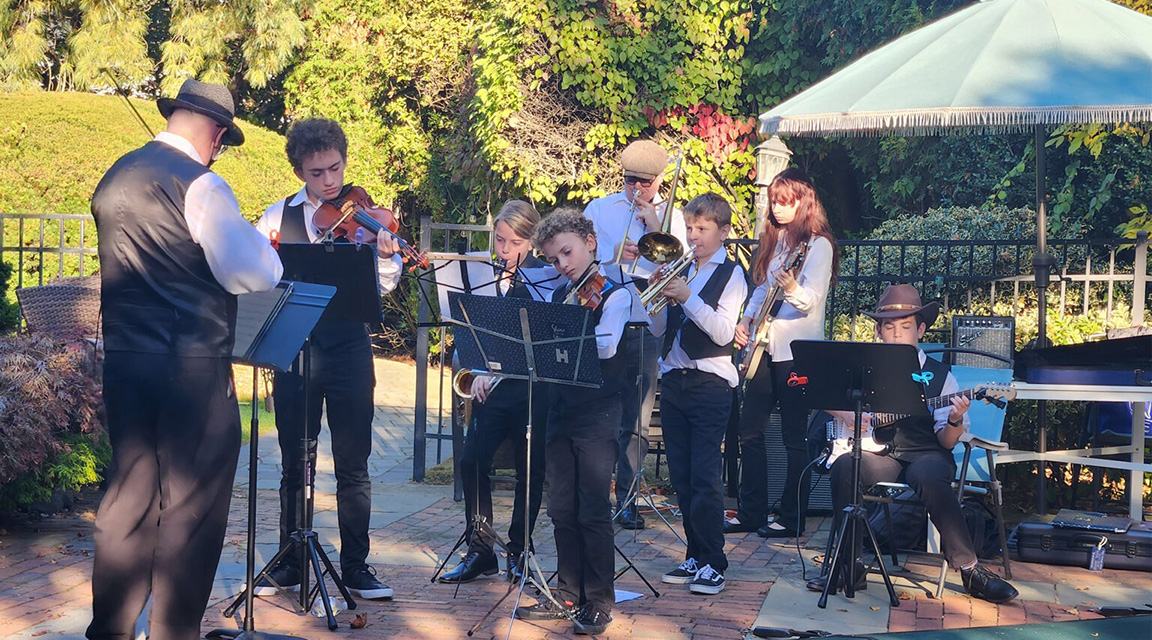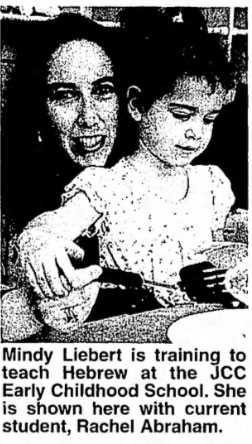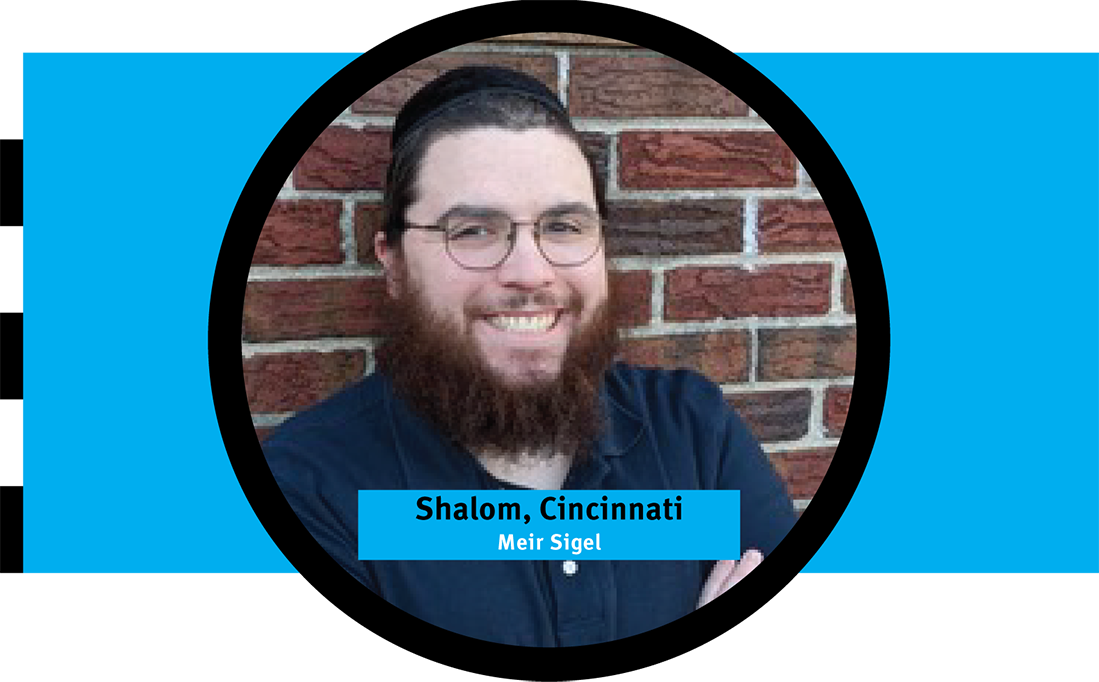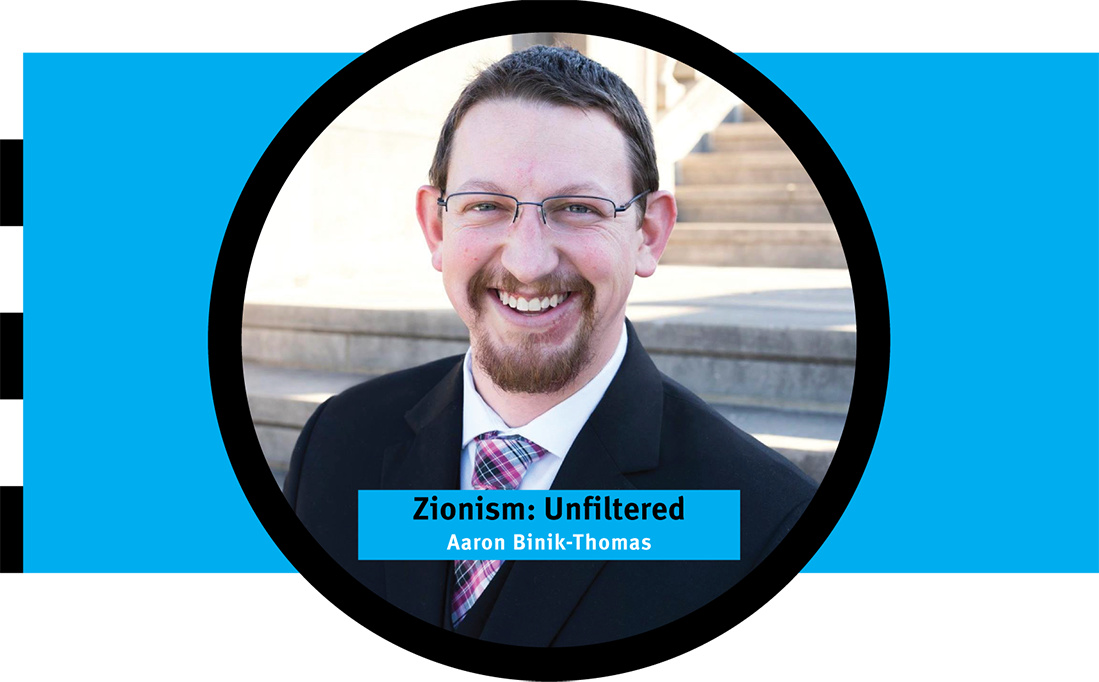Courtesy of JTA. Photo credit: Audra Lewton
The Klezmaniacs perform at the MakomNY synagogue’s Sukkot open house in Bethpage, New York, Oct. 20, 2024
(JTA) — At the Orchard Estate assisted living facility in Woodbury, New York, residents hum along to the klezmer music familiar to many Jews of their generation. The Yiddish-inflected music with roots in Eastern Europe is old school, but the band is not: Its six members range in age from 10 to 16.
The young musicians are members of the Klezmaniacs, a new, local ensemble. This youth klezmer band, founded in January 2023 at the MakomNY synagogue in Bethpage, New York, is one of at least three klezmer youth ensembles that have sprung up around the country in recent years.
“I find that to be very promising,” Crowder said of the growth of youth klezmer and its impact. “It really bodes well for the future.”
Leo Clark, 15, who plays viola in the band, is a founding member of the Klezmaniacs, whose members come from three different Jewish families.
There are several instrumental techniques, including some meant to mimic the voice of a cantor, that are unique to klezmer. According to Alicia Svigals, the best known active klezmer violinist, klezmer went out of fashion in the U.S. “starting around the 1960s,” when it was “supplanted by Israeli folk dance music and new Israeli music.”
“It was starting to be considered old-fashioned, and Yiddish was no longer in fashion, it was Grandma and Grandpa’s language” said Svigals, adding that klezmer faded from the scene because of “a combination of Zionism and assimilation.” Musicians like Andy Statman and the Klezmer Conservatory Band began reviving klezmer in the late 1970s and early 1980s. Svigals began playing klezmer “five to 10 years” later, rediscovering traditional klezmer violin techniques by listening to old recordings of klezmer fiddlers and adding her own flourishes, creating her own style. She became a founding member of the Grammy-winning Klezmatics, the most popular of the revival bands.
The Klezmaniacs of MakomNY, which Audra Lewton, Clark’s mother, described as a “very musical Jewish community,” is one of the youth groups immersing Jewish children in klezmer. “I was thinking about ways that we might even further expand that and involve the kids and the teens,” said Lewton on founding the Klezmaniacs. “I thought it might be fun to explore a different genre of music for the kids,” many of whom play classical music in school.
“The idea of tying in a klezmer band for kids and teens just seemed really cool and different, something that’s not really happening, at least around here, anywhere else,” she said.
Lewton recruited Aaron Alexander, a professional klezmer drummer and teacher who coaches several youth and intergenerational klezmer bands across New York, including a group at the Workers’ Circle, to work with the klezmaniacs.
“I’m treating it kind of just like having a band,” Alexander said. “I’m trying to teach them a little bit about klezmer and Yiddish music history.” Because the group is based in a synagogue, “we’re also doing klezmer-adjacent tunes, some liturgical things.”
Klezmer, unlike most classical music, is improvisational, so Alexander is teaching his students to ornament melodies and play their own interpretations of the music. In the future, Alexander hopes to unite the different youth klezmer ensembles throughout New York into “an all-city klezmer band,” although that “requires more administrative persistence than” he’s been able to muster.
their music.
“Klezmer has been really fun,” Clark said. “We constantly get new music and it’s always fun to just play with friends; the community there is also really great. I’ve had a lot of fun with some of the other bandmates.”





